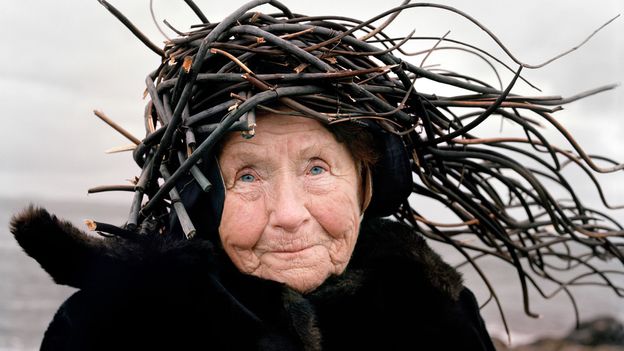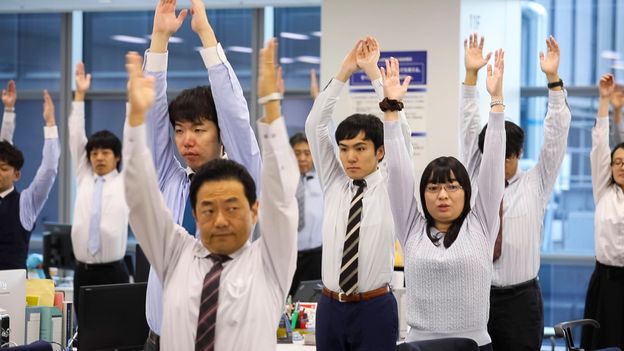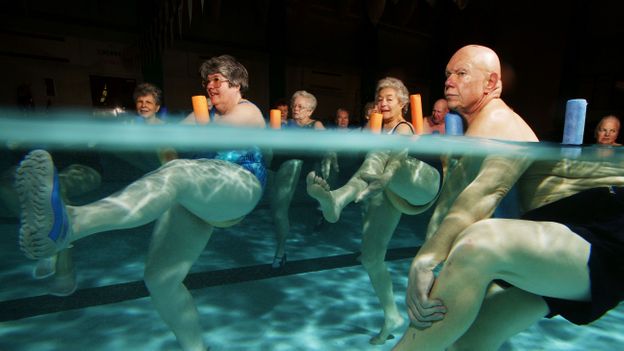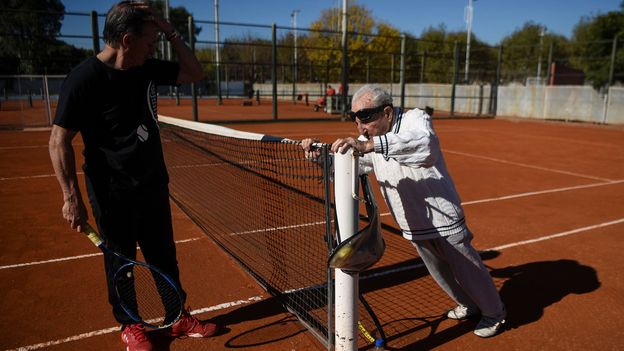In the US, a doll-sized robot called Mabu is being used as a virtual care assistant. It can check in on pensioners’ wellbeing, whether or not they have taken their medicine and even suggest if the weather is good enough for them to take a stroll outside. In Japan and other parts of Asia, a robot called Dinsow plays a similar role. It has a tablet for a face, allowing users to watch videos and read instructions, while family members can also automatically dial in for video calls.
Sweden – where more than half of all households are made up of just one person (the highest proportion in Europe) – has started trialling a voice assistant smart speaker designed to drive a meaningful conversation about users’ strongest memories as a way of tackling loneliness.
Participants are asked to discuss topics including their biggest loves and travel experiences, with the speakers responding with relevant follow-up questions.
For instance, when one 78-year-old began sharing that he had lived and travelled all over the world, he was asked: “Was is the difference between relationships in Sweden and those in other countries you have been to?”. He responded that Swedes are “very individualistic characters and have a very strong focus on our independence,” and noted that was one of the hardest aspects of Swedish life for him.
“It was surprising to see that they were really glad to share their stories – whether it was a voice assistant or a recorder or whatever. That came naturally,” says Thomas Gibson from Stockholm Exergi, an energy provider in the Swedish capital which is co-funding the pilot, called Memory Lane.
The company hopes that the concept can also go some way toward “tackling ageism and social inclusion” by making podcasts of some of the conversations available to younger Stockholmers. “A lot of people are interested to hear their life stories,” says Gibson.
Data privacy
Claire Ingram Bogusz, a postdoctoral researcher at Gothenburg University, who specialises in how new technologies impact the way we live, agrees that projects like Memory Lane could prove to be a useful new tool for recording personal histories, while also giving the elderly increased opportunities to communicate.
However, she warns that companies testing these sorts of technologies need to ensure they have a strong grip on what happens to the data.
“The stories that these people are telling are their life stories – intensely personal. Like with any personal data, there needs to be clarity around who is responsible for it, how they will protect it and what they will do with it.”
Those working on the Memory Lane project argue that they are prioritising user safety by using local service servers and encrypted servers. “Nothing is in the Cloud. There is no sharing of third-party data from our side,” says Thomas Gibson.
The Google Home smart speakers used in both Memory Lane and the project in Bournemouth have hit the headlines recently amid debate about how the tech giant uses the data collected. But the company has insisted it does not sell information to third parties.
“I’ve got nothing, absolutely nothing that I would want to hide,” reflects John Winward when asked if he has any concerns about the conversations he’s had with his smart speaker. “As long as they don’t interfere with my bank balance and things like that, I’m happy!”
Social reconnections
As research into the benefits of using voice assistants and other technologies to help lonely pensioners continues, there are hopes that the coronavirus crisis itself – which has highlighted the vulnerability of many elderly people – may bring something of a silver lining when it comes to future societal efforts to tackle social isolation.












